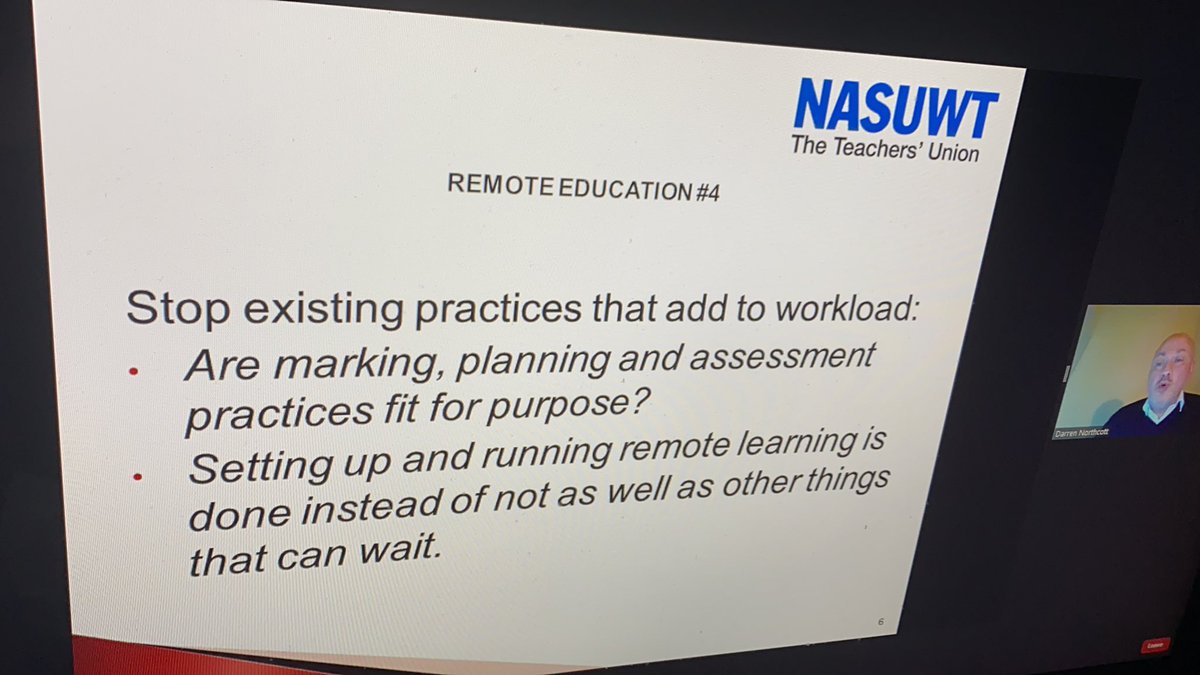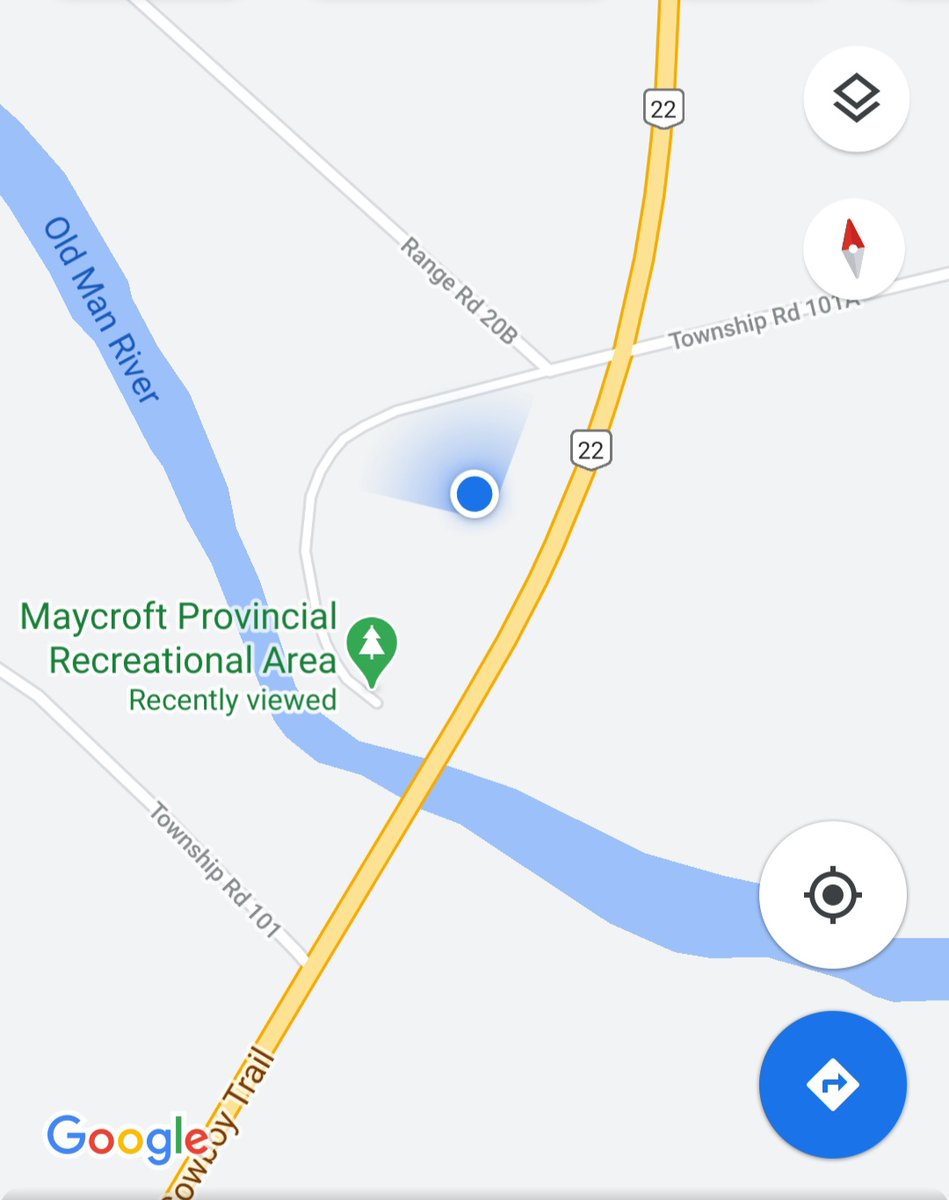Mollyycolllinss Categories For later read
Instead of gathering dusts in my bookmarks I have compiled them into one guide:
With: @gaganbiyani @RomeenSheth @josephflaherty @yoheinakajima @daytonmills @micahjay1 @paigefinnn @dunkhippo33 @amanda_robs @pinverrr
1/10. Adjusting your mental mode to the process of
At Udemy, we were 3 first-time entrepreneurs trying to raise seed capital. We made every mistake in the book.
— Gagan Biyani (@gaganbiyani) October 7, 2020
We got 200+ no\u2019s and wasted 12 months fundraising.
We eventually pulled through, just barely. \U0001f605
This thread shares our mistakes as lessons for founders.
**Read On**
2/10. Fundamentals for building the slide
0/ There\u2019s a lot of noise on how to pitch your startup.
— Romeen Sheth (@RomeenSheth) January 5, 2021
Keep it simple. Every good pitch boils down to five ingredients. If you have all 5, you'll get funded. Miss 1 and it can be fatal.
I made a chart describing how the ingredients relate to each other.
Let's dig in \U0001f447 pic.twitter.com/pSeH8yzfKp
3/10. How to craft the most important slide in the
Every pitch deck needs a \u201cteam\u201d slide.
— Joseph Flaherty (@josephflaherty) January 31, 2020
At the early stage of a startup when the product concept is fuzzy and revenue is non-existent, VCs are essentially backing the team above all else.
But almost all team slides are sub-optimal.
Here are two ways they could be better:
/1
4/10. One way of raising a seed round:
How to raise a seed round. Just one process, adjust accordingly. Missing lots of nuance. \U0001f447
— Yohei Nakajima \U0001f64b\U0001f3fb\u200d\u2642\ufe0f (@yoheinakajima) December 20, 2020
6. What about the exception for \u201ccases of impeachment\u201d?
— Steve Vladeck (@steve_vladeck) January 19, 2021
Some argue that this means that no pardons can be issued *while* the President is under impeachment or for offenses by others that are *related* to the basis for an impeachment.
I (and most scholars) strongly disagree.
Is it only limited when the president is impeached and removed? Clinton’s pardons were allowed to stand, after he was impeached by the House—but the impeachment cause was so trivial—& they were also unrelated to the causes of his impeachment.
I actually think that allowing Clinton to grant pardons after impeachment was a big mistake, one that went against the intention of the Constitution, & one that helped to create the current mess. But that narrow precedent stands. What about the longer history & larger question?
After impeachment, President Johnson gave at least two pardons but they were reversed by President Grant immediately afterwards. How many did he give once impeached? Can other historians pipe in?
The revised edition of Joseph Story’s textbook of constitutional interpretation, published in 1868, said that presidents cannot pardon after impeachment as such a power “might become ... a protection against political offenses...the party accused might be acting under ...”
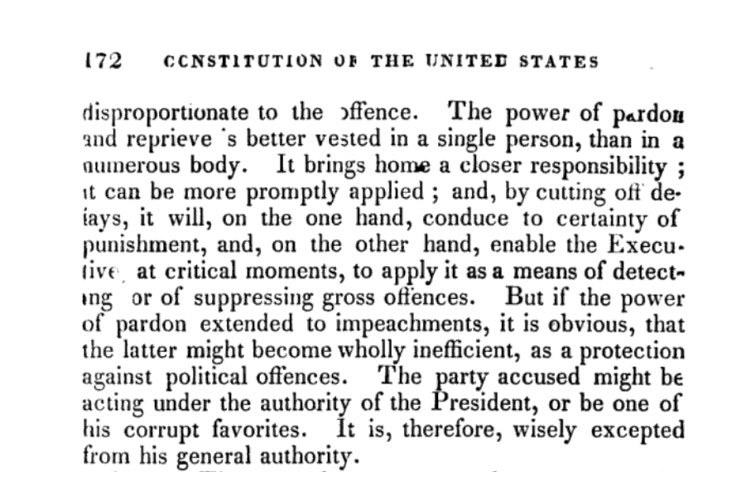
he's sure that if he hadn't had the help he does from the very beginning, he'd have lost a long time ago.
"It's not up to me." (It's up to you.)
— cas \U0001f338 (@dekuthepastry) January 19, 2021
shouto steps out of his office. he's the last to leave tonight, though that's no surprise. he's usually one of the lastest working heroes in the agency.
he'd been hoping to get back to his apartment without a hitch, but he can tell that won't be the case. not tonight.
not when it feels like someone's watching his every move.
he continues walking for a beat, stepping out of view of his agency. he reaches a fire escape stairwell against the side of another building and climbs to the top, quiet as he can.
shouto could use his ice to get up,
but keeping inconspicuous is more important than speed.
he settles on the edge of the building, legs relishing in the pull of gravity for but a moment.
"shadow," shouto says aloud then, unsurprised.
when he blinks, the vigilante stands beside him, usual dark get-up donned, though this time he doesn't have his mask and hood pulled up. he looks... normal. if anything, that feels stranger than seeing nothing but the man's green eyes.

Such “pseudo-cuneiform” text is known from some seals and charms, like these Lamaštu amulets (https://t.co/JBcbmybEmH & https://t.co/fByNIVOzF5). Presumably the intended viewers couldn't read cuneiform, so it didn't matter if the signs were nonsense. They still looked impressive!
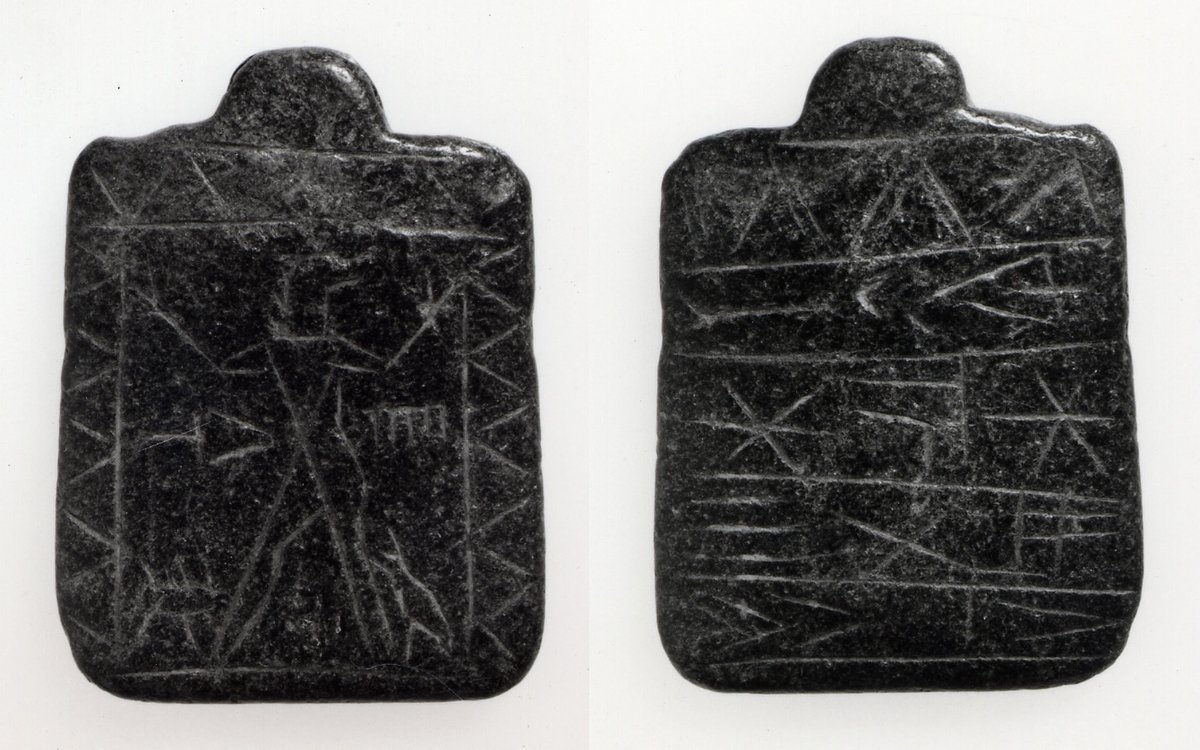
Of course, such “pseudo-writing” is not restricted to cuneiform, but is found all over the world and for all writing systems. For a nice overview, see e.g. Houston 2018, “Writing that Isn’t: Pseudo-Scripts in Comparative View”, https://t.co/G0at5siAxS
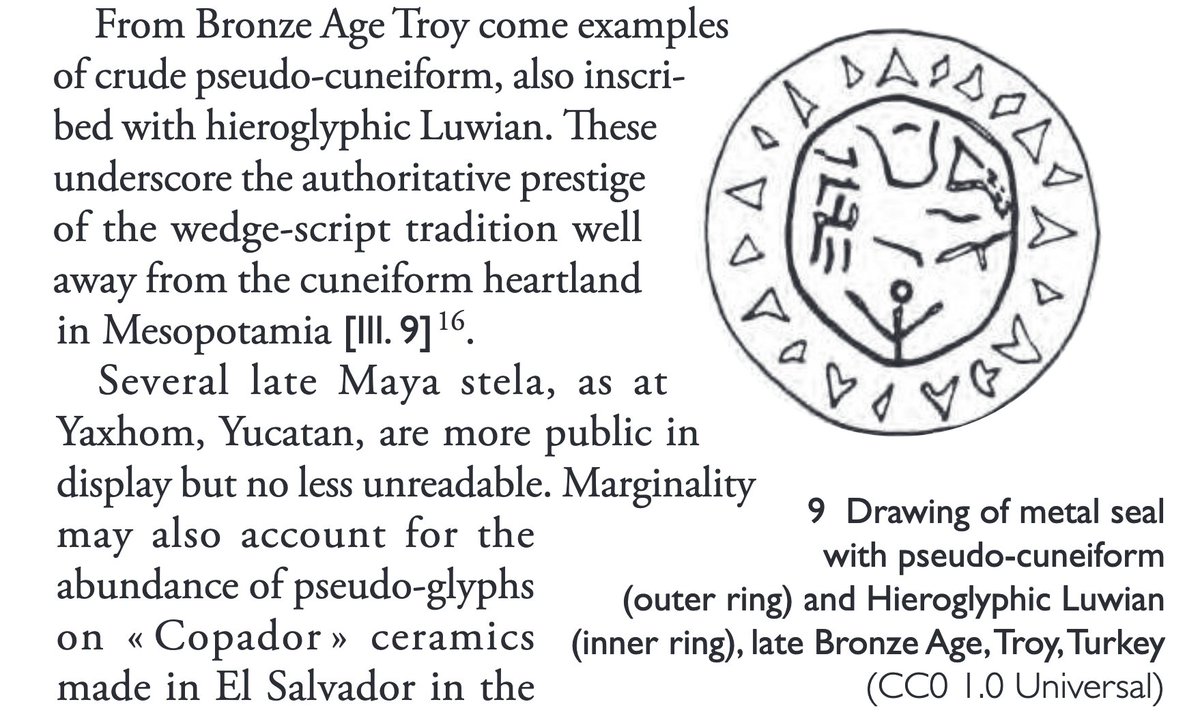
In fact, some authors have suggested that “pseudo-texts are relatively rare in cuneiform” (Veldhuis, via Houston 2018) — of course excluding modern fake antiquities, which we already mentioned in a previous thread a few days ago:
Fact 20: Cuneiform tablets have been forged for ages! Ancient forgeries are often more difficult to identify, while modern fakes can sometimes be pretty clumsy. Here\u2019s a short thread on cuneiform forgery. #AdventCalendar pic.twitter.com/zPKSfCmNLQ
— Team Cuneiform (@cooleiform) December 20, 2020
Certainly they seem to be a lot harder to find than I expected! The few images above are pretty much all we found while researching (a.k.a. googling) material for this thread. I'm sure more are known in the literature, but my usually decent web search skills are failing me here.

